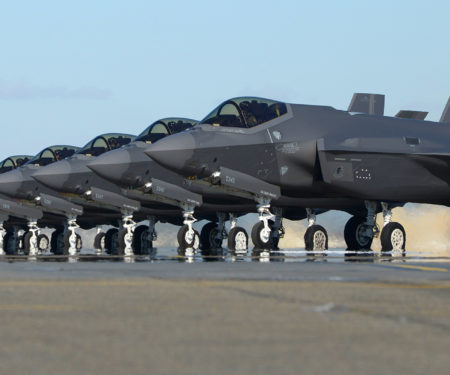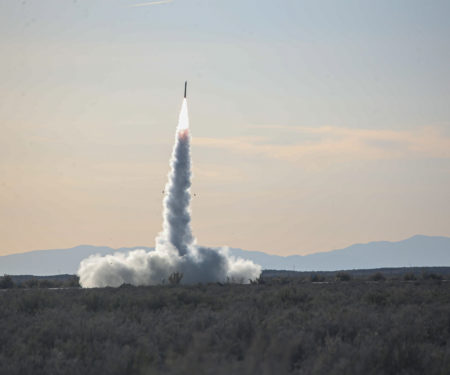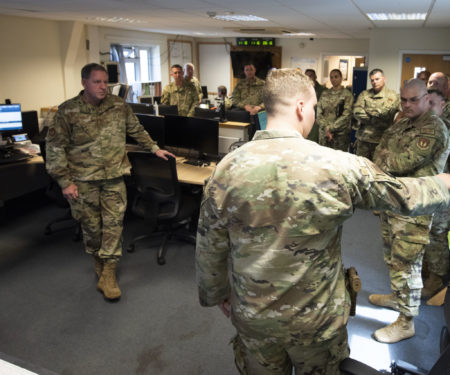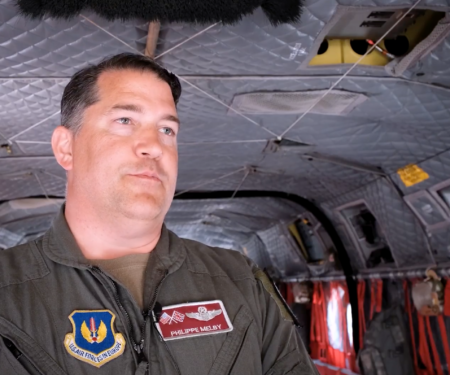Radar Sweep
Burn Pits Benefits Bill Concerns Aren’t New, Hinge on Budget Moves
The fate of sweeping military toxic exposure legislation that could benefit millions of American veterans hinges on a fight over government accounting methods. Senate Democrats are expected to bring up the Promise to Address Comprehensive Toxics Act, also known as the PACT Act, for another procedural vote Aug. 1. If they can get 60 votes for the action, the bill is likely to pass by the end of the week and be signed into law by President Joe Biden a few days later.
Federal Judge Grants Preliminary Injunction in Air Force Vaccine Case
A federal court in Cincinnati granted class certification and a preliminary injunction to protect members of the Air Force from discipline while their lawsuit continues against the Department of Defense’s COVID vaccine mandate. The plaintiffs in the case have been seeking an exemption from the mandate for religious reasons. The same judge earlier certified the plaintiffs as a class, in a ruling that affects 80 to 100 Airmen who are serving or have served at Wright-Patterson Air Force Base, Ohio, according to Kentucky attorney Christopher Wiest.
Applications to the Air Force Academy Are Way Down—20 percent—as COVID Continues
Applications for admittance to the Air Force Academy in Colorado Springs dropped by about 20 percent for the latest incoming class of cadets compared with application numbers seen before the coronavirus pandemic. A total of 8,393 people submitted applications to be part of the academy’s class of 2026. Ultimately, 1,071 were admitted into the institution. Col. Arthur Wayne Primas Jr., the academy’s director of admissions, said approximately 10,600 people applied in the years leading up to COVID-19. He attributed the drop largely to the academy’s decision to stop in-person recruiting for much of the pandemic. That meant recruiters did not visit high school college fairs or recruit at youth STEM competitions.
Space Force Officially Creates Cryptologic Service Component for NSA
Maj. Gen. Leah G. Lauderback, director for intelligence, surveillance, and reconnaissance, S2, is the first Space Force service cryptologic chief. Each military service now has a cryptologic component that is responsible to the National Security Agency and Central Security Service. The NSA, in its combat support role, provides signals intelligence. The lesser known Central Security Service “provides timely and accurate cryptologic support, knowledge and assistance to the military cryptologic community.”
New Sexual Assault Policies Across the Military
Military branches are taking a tougher stance to combat sexual assault to create safer environments for service members and to encourage victims to come forward. The Army, Navy, and Air Force are implementing new policies aimed at reducing assaults. The Defense Department has been battling sexual assault incidents for years and is in the process of implementing more than 80 recommendations from an independent review commission that finished its work in 2021.
Biden Speaks With China's Xi for Over 2 hours Amid Tensions With Taiwan
President Biden and Chinese President Xi Jinping spoke by phone for 2 hours and 17 minutes July 28, their first conversation in roughly four months. The call was part of the administration's efforts "to maintain and deepen lines of communication" between the U.S. and People's Republic of China and to "responsibly manage our differences and work together where our interests align," according to a White House statement. On Taiwan, President Biden told Xi that the U.S. has not changed its policy and "strongly opposes unilateral efforts to change the status quo or undermine peace and stability across the Taiwan Strait," the White House said
Hill AFB Captures First Air Force EOD National Title
The winners of three competitive regional events designed to test and enhance the readiness capabilities of explosive ordnance disposal teams across the Air Force settled the score with Hill AFB earning the inaugural Air Force EOD National Team of the Year title. Three previously-held EOD events—the Southeast Region, West Region, and Air Force Global Strike competitions—culminated in the grand finale, which challenged the EOD teams from Little Rock, Hill, and Minot Air Force Bases to compete, determining the Air Force’s national champion.
White House Calls for Review of 25-year Deadline for De-orbiting Dead Satellites
The White House has issued its long-awaited implementation plan for combating the rapid growth of dangerous space debris, setting up a whopping 44 separate tasks for the Defense Department, NASA, the Commerce Department, and other agencies—largely in the research realm, but including a review of best practices for operators. Most importantly, the National Orbital Debris Implementation Plan includes re-opening the question of whether government, civil, and commercial operators should be exhorted, or required under licensing regulations, to deorbit dead satellites earlier than the deadline of 25 years after end of life.
Air Force Comptroller Kristyn Jones: Financial Management Is an Enterprise Issue
The Department of the Air Force has undoubtedly led the U.S. military’s modernization push in the last few years—DAF leaders have long been champions of transformational changes such as IT improvements, digital transformation efforts, and data advancements. But officials argue that financial management, or FM, needs a bigger seat at the table in these critical conversations. One key priority right now for Kristyn Jones, assistant secretary for financial management and comptroller at the Department of the Air Force, is optimizing the notoriously challenging audit process through more of an enterprise approach.
Former Cold War Air Force Base Up for Auction
K.I. Sawyer Air Force Base in Gwinn, Mich., was built to scramble fighter jets and intercept detected threats. Now it’s on the auction block as a property with lots of promise for commercial air service. The base was constructed as one of several support bases built shortly after the start of the Korean War in 1950. It was intended to aid the nearby Calumet Air Force Station, one of 28 advanced radar stations built by the Department of Defense at the time. After operating for almost 40 years, this particular base—named for the civil engineer Kenneth Ingalls Sawyer—was decommissioned in 1995, although the active Sawyer International Airport still occupies a portion of it.



